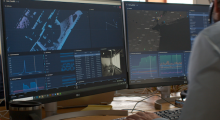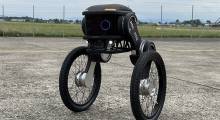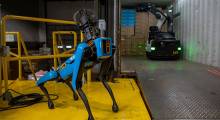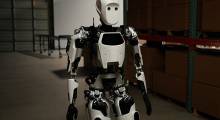DEEP Robotics Co., a developer of quadrupedal robots, earlier this month announced that a team of five Jueying X20 robots successfully completed a series of autonomous collaborative searches in a trial using eight different scenarios across an unknown environment of 3,000 square meters.
The success of the four-legged X20 robots in the trial reveals the potential for their deployment in search and inspection capacities, Hangzhou, China-based company said. The robots, developed by DEEP Robotics, look similar to dogs, which are often trained and used for inspection and search purposes.
X20 takes on dangerous tasks
The X20 is the latest edition in the DEEP Robotics Jueying series.The tasks it undertakes include power inspections, emergency rescues, public safety inspections, tunnel, mining and industrial site inspections, and construction site exploration.
The robots have the capability to provide help in rough terrain in the aftermath of earthquakes.
“Teams working on emergency searches or for site exploration commonly face challenges such as insufficient site data and risks to their personal safety. That’s where these robots can provide valuable assistance,” said Wei Tang, head of algorithm engineering at DEEP Robotics.
“The robots share the simplest and most useful information, which can reduce bandwidth communication costs while improving functionality, leading to better outcomes,” said Teng.
Details of the missions
In simulated emergency searches, the robots were tasked to retrieve inflammable and explosive items, as well as rescue injured people.
To do this, the five X20 robots were each fitted with a high-resolution panoramic camera, along with a LiDAR and Mesh network. They then coordinated with each other to cover different search areas and complete the tasks.
Using laser technology for a synchronous mapping and positioning algorithm, the location environment is mapped. This allows for each robot to be independently allocated different exploration areas and targets in real-time through a collaborative mechanism.
The robots can then complete the cluster search of a large range of unknown areas with autonomous navigation and routing.
The success of this trial paves the way for the future adoption of quadrupedal robots in difficult and high-risk environments, supporting or replacing humans in doing life-threatening tasks, while increasing the speed and accuracy during emergency rescue operations.”
Last year, DEEP Robotics completed its Series B funding, led by F&G Venture with participation by Xihu Venture Capital. Existing shareholder Cybernaut also built on its original investment. The company’s clients and partners include Eastern Green Power, SUPCON,Lenovo, Takenaka Corporation, Baosteel, University College London and the University of Edinburgh.
Article topics
Email Sign Up
















